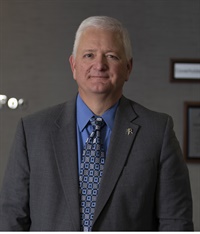Information
Gigs and Side Hustles - The Insurance Issues
Length: 2 Hours
This seminar is a fast-paced look at the personal and commercial lines insurance issues that have been created in the gig economy. The first section of the seminar looks at standard definitions and characteristics of the sharing and the gig economy, chiefly by using examples. Of course, the behemoth in the group is Uber. It is also the paradigm for the gig and sharing economy. Private drivers use their own private vehicle to act like a taxi service. Apps such as Touro permit private drivers to use their vehicles for rental, much like Avis or Hertz. The sharing economy is not limited to vehicles, however. In a similar vein homeowners can use their residence as a hotel by renting it out for short periods of time via Airbnb or VRBO (Vacation Rentals by Owner).
To discuss the insurance ramifications of this, a bit of history and background is in order. The phenomenon of the sharing economy is not completely new, at least from the perspective of the homeowners’ insurance community. For decades, business owners have operated their own businesses from the home. Traditional insurance forms have broadly defined “business,” which has resulted in a fairly consistent attempt to exclude that risk from the scope of the standard homeowners policy. Conceptually at least, this is the forerunner of attempts to exclude sharing economy risks from traditional personal lines policies, such as the auto and homeowners policy.
With this background and history in place, the seminar then turns to an examination of the particulars with regard to both the personal auto policy form and homeowners form. In both instances, the forms of the Insurance Services Office are used as a basis for discussing exclusions, endorsements, and recent changes in the baseline form.
In both sections, time is devoted to how the available insurance from the platform connects with and potentially interacts with the coverage available to the homeowner or driver.
The final section of the seminar changes focus. It looks at issues connected to the gig economy from the perspective of an employer in a more traditional business model. Simply put, can gig workers be held to be employees, despite the efforts of employers to treat them as temporary workers and therefore independent contractors? This section examines some case law and also some employment law developments that may influence the question not only from the perspective of the commercial liability policy, but more particularly the workers compensation laws.
As a concluding exercise the seminar asks a hypothetical question about whether a restaurant, or an app such as Door Dash, can or should be held liable when a driver has an accident while delivering food. The idea behind the scenario is to ask the question about not only insuring the needs of the restaurant as well as the driver, but also asks about the underlying liability itself and the prospect that there may not be as much insurance available generally to claimants as would be expected or anticipated.
Basic Course Information
Learning Objectives- Learn what the sharing economy is including the history of these types of gigs.
- Deep dive into Home Sharing, Ride Sharing, and Car Sharing.
- Learn the insurance needs of the gig worker.
Major Subjects
- How insurance works in the gig economy focusing on ride sharing and home sharing.
Richard Pitts, Vice President and General Counsel, Arlington Roe

Richard S. Pitts is a private practice attorney in the insurance industry. Rick serves as Vice-President and General Counsel to Arlington/Roe & Co., Inc., an insurance brokerage and managing general agent headquartered in Indianapolis. Rick also serves as general counsel to the Independent Insurance Agents of Indiana, Inc., as well as its sister organization in Kentucky. Rick speaks annually at the “Roadshows” in Kentucky and Indiana’s Agency Compliance Seminars and presents various seminars on insurance and employment related matters. Pitts has also presented continuing education seminars to insurance professionals nationally through industry groups including the National Alliance for Insurance Education and Research.
Rick is a 1983 graduate of Wabash College and a 1986 graduate of Indiana University School of Law – Indianapolis. Pitts clerked for the Honorable Patrick D. Sullivan, a judge of the Indiana Court of Appeals in 1986-87. Rick is admitted to practice before Indiana state and federal courts, the United States Supreme Court and the United States Court of Appeals for the Seventh Circuit and is a member of local, state and national bar associations. Pitts has tried multiple cases and participated in over seventy appeals.
Pitts is the recipient of the “Excellence in Continuing Legal Education Award” from the Indiana Continuing Legal Education Forum (ICLEF), having served as a panelist and lecturer on a variety of continuing education subjects. Pitts has co-authored two articles appearing in the Indiana Law Review.


